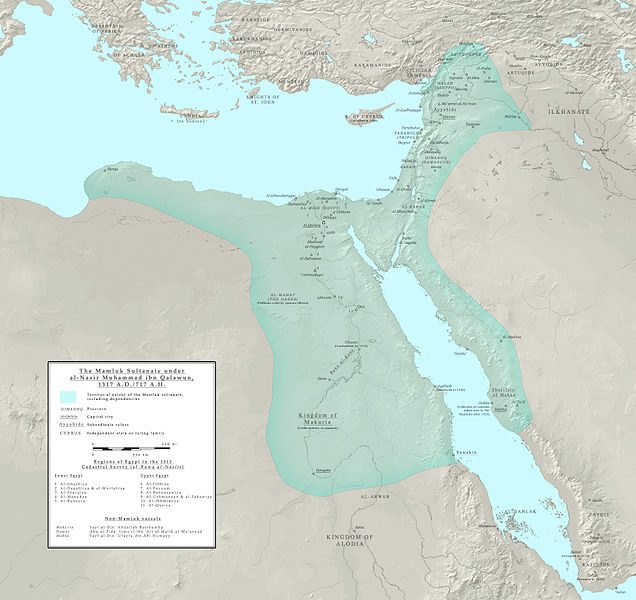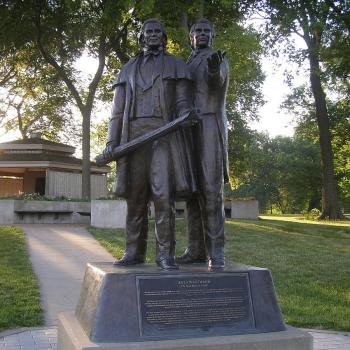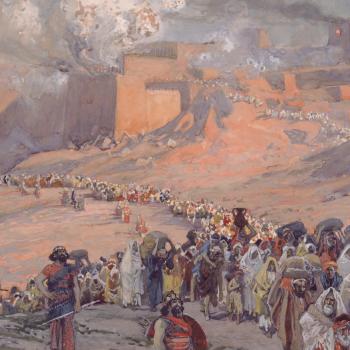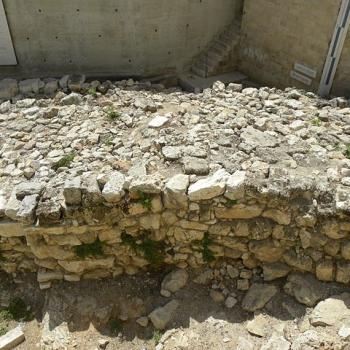
Saladin established a dynasty in Egypt and Syria, but it never quite measured up to the qualities of its founder and it was relatively short-lived. I am more interested in what followed. Like earlier rulers in the Islamic Near East, Saladin brought in fresh warriors from central Asia to serve in his army. These slave soldiers were known as mamluks.[1] The word mamluk means “owned,” and it is a common term used in Arabic to describe slaves. Saladin’s successors followed him in this practice of importing mamluks. But when the dynasty began to run out of steam, something unusual and highly interesting took place: The slave soldiers took charge. Thus arose what is often, and quite misleadingly, called the Mamluk dynasty of Egypt.
To explain, the rulers of Egypt and their leading associates bought central Asian mamluks to serve in their own personal armies. When these owners died, the mamluks were considered free. (To fully understand the situation, we need to get out of our minds any pictures of slavery as it existed in the American South. We are not talking here of plantations and the like. Even when they were still slaves, the mamluks were highly trained in their business of war and often lived extremely well. It was simply that they owed obedience to their master.) They typically felt no particular allegiance to the children of their owner, unless for some reason—perhaps by reason of affection for their late master—they chose to do so. And that was rare. They would then begin to buy their own mamluks, if they had not already done so. When the dynasty founded by Saladin dissolved, the mamluks of the last sultan took control in their own behalf.
But the regime that they founded should not, properly speaking, be called a dynasty. Only relatively rarely was a father succeeded by his son. A mamluk’s children were not themselves mamluks. More importantly, perhaps, it was considered that the children of a mamluk, who had grown up in the comparatively posh conditions of Egypt rather than in the tough warrior-producing steppes of central Asia as their father had, were too soft to be real warriors. Thus, there was no succession within the mamluk system. Whenever a mamluk sultan of Egypt died, there would be a struggle among the other mamluks to see who would succeed him. Eventually, one would triumph over the others, and the regime would go on.
Although an extreme example, the mamluk system serves to illustrate several important facets of Islamic society, some of them characteristic not only of the Middle Periods but also of the Near East today. The mamluk system created a ruling elite whose foreignness was astonishing even by the standards of the period. Not only was that elite racially distinct and linguistically separate, but it remained so because fresh blood was constantly brought in from central Asia to replenish it. Men who were born on Egyptian soil to Egyptian mothers, were raised along the Nile, and were fluent in Egyptian Arabic were largely barred from rule. Both amirs and the ‘ulama’ of the Middle Periods rose by personal ability and prestige to whatever status they attained. Islamic law recognizes no inherited distinctions of rank. Everything is by contract. Under the mamluks and in the Middle Periods generally, this created real problems in the matter of political succession. (Remember that the tribes of Arabia thought when Muhammad died that they no longer owed any loyalty to the Muslim regime in Medina. Their agreement was only with the Prophet personally) Even a ruler’s designation of his son or somebody else as his successor might or might not be honored; his followers did not feel obliged to obey him after his death.
This question of succession has been a difficult one around the world. We tend to take it for granted in the United States, but I remember the reaction of the Egyptians when Ronald Reagan defeated Jimmy Carter for the American presidency while my wife and I were living there. (Yes, I’m that old.) First of all, it was amazing to many Egyptians that Carter had lost the election in the first place. He was wildly popular in Egypt because of his role in working out the Camp David peace accord between Egypt and Israel, and they could not imagine that many Americans were not just as delirious about him as they were. I recall once seeing “God bless Jimmy Kartar!” spray-painted on a building in Cairo, and I often saw young Cairenes walking around in T-shirts bearing a picture of Carter and Sadat. (It was something I never saw in the United States. Another striking fact was that nobody in Egypt ever wore a picture of Israeli prime minister Menachem Begin, nor, so far as I know, did any spray-painted graffiti invoke God’s blessing upon him.) Secondly, in the Near East as in Latin America, the incumbent president generally wins elections by 98.7 percent of the vote, or something on that order. It was difficult for Egyptians to imagine that a sitting president, in full control of both the military and the police, could lose an election. But what really astonished some of the Egyptians with whom I spoke was that, when the day came around, Jimmy Carter voluntarily walked out of the White House and yielded up the most powerful political office on the face of the earth to Ronald Reagan. Carter offered no resistance, and no tanks had to ring the presidential mansion in order to ensure the transfer of power. This astonished them. The question of succession has, for the most part, not yet been solved in the Near East.
[1] The word is pronounced “mam-LUKE.” Indeed, it is sometimes spelled that way (mamluke), particularly in older English books and articles.
Posted from Park City, Utah












